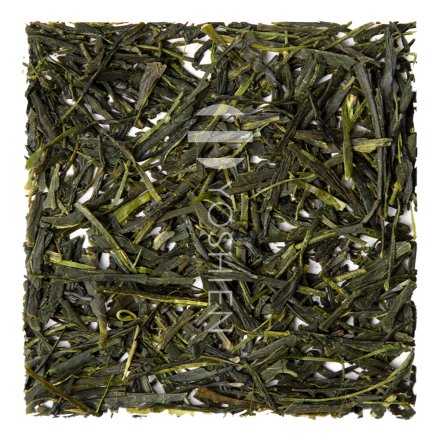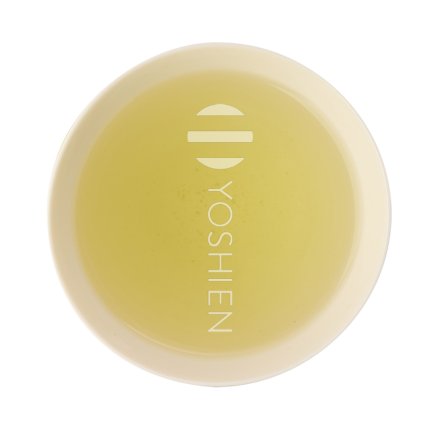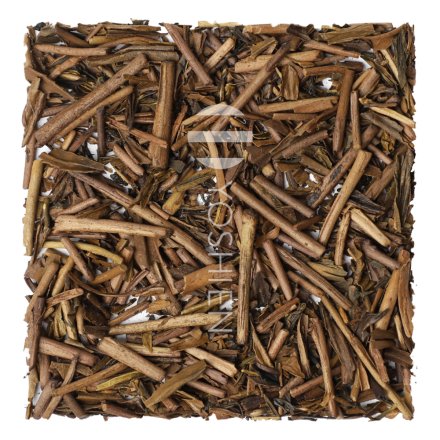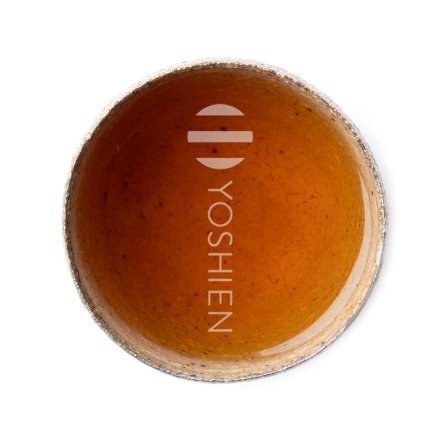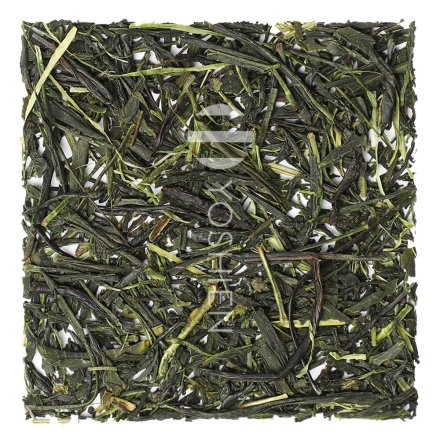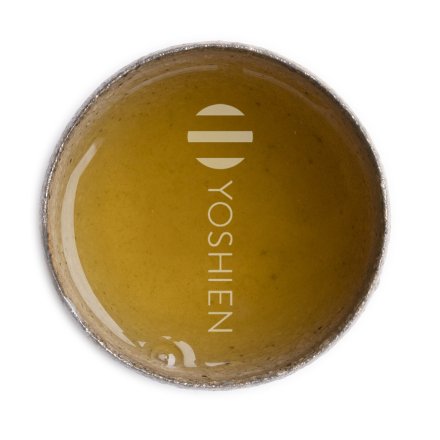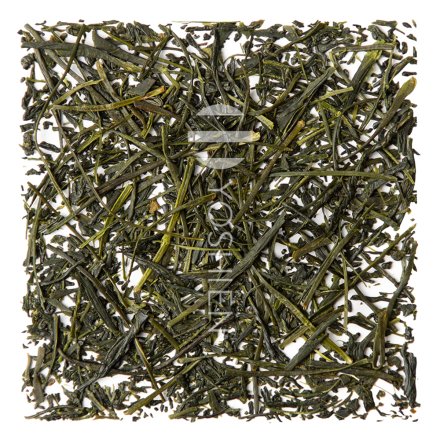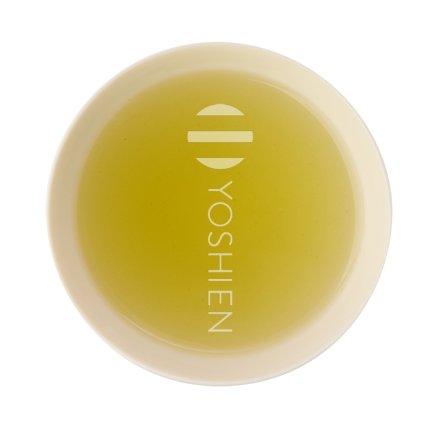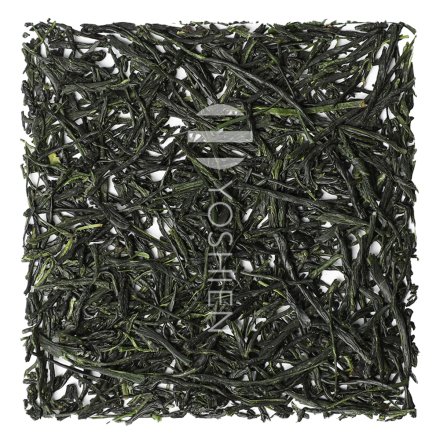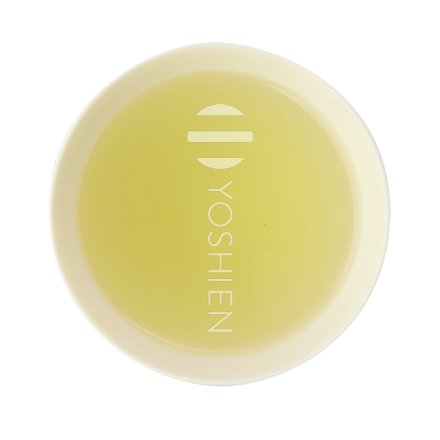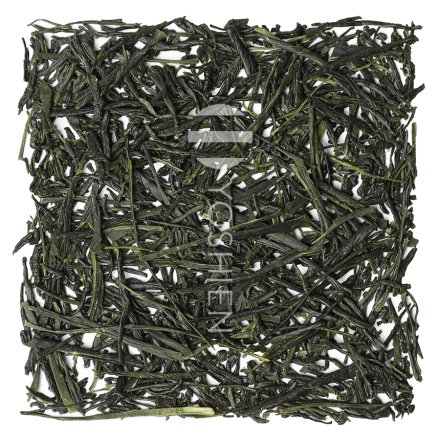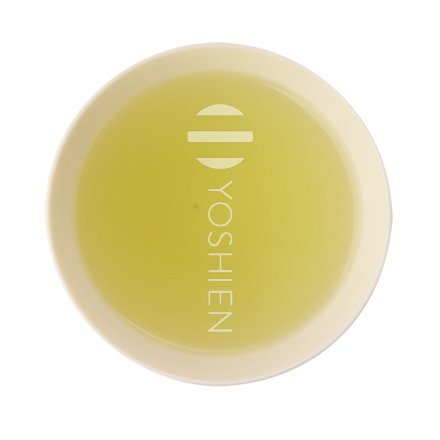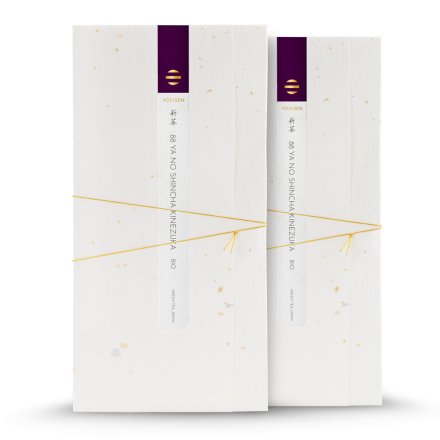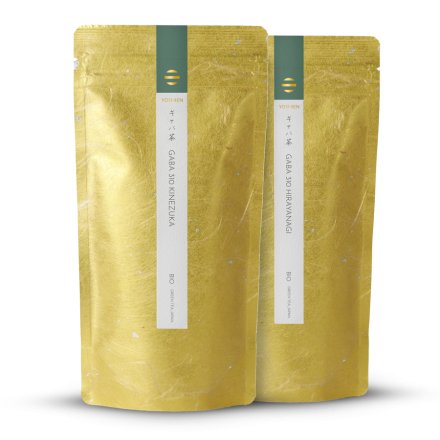KINEZUKA TEA GARDEN
PREMIUM ORGANIC MOUNTAIN SENCHA FROM SHIZUOKA
| Tea Farm: |
Kinezuka |
| Terroir: |
Setoya, Fujieda, Shizuoka, Japan |
| Elevation: |
200–400m above sea level |
| Organic Cert.: |
EU certified organic & JAS organic since 2016, no use of plant protection products since 1976 |
| Focus: |
Mountain sencha, shincha |
The second-generation Kinezuka Tea Farm was founded in 1976 by the likeable Toshiaki Kinezuka and is located in the mountainous and idyllic town of Fujieda within Shizuoka Prefecture. A region known for its beautiful mountain scenery and rivers and whose climate offers the best conditions for quality organic teas.
Kinezuka's traditional agriculture with a completely natural approach is almost perfectly in line with our values of organic pure teas. As the only partner farm from Shizuoka at the moment, we source a small collection of teas, which we have, however, carefully selected according to certain criteria. Thus, Kinezuka teas offer us a natural flavour strongly influenced by the Fujieda terroir, which contrasts with the usual Shizuoka character and provides an understanding of traditionally produced teas.
Since its inception, the tea farm has insisted on the complete elimination of any pesticides, even those allowed under the Japanese JAS organic regulation. As this was not an easy change, it took 3 years until the first teas could be harvested according to his conscientious requirements. Today, despite initial doubts from other tea farmers in the region, Kinezuka stands as the organic pioneer in Fujieda, providing the most natural tea of traditional farming methods.
KINEZUKA - A TEA FARM WITH A LOVE FOR NATURE AND COMMUNITY.
Before Mr. Kinezuka decided to switch to pesticide-free organic farming, the use of pesticides was excessively promoted by the government for increasing the yield and quality of agriculture. As a result, their use became entrenched in conventional farming. When Mr. Kinezuka noticed that fish stocks in the region's rivers were drastically declining and even the usually present fireflies were no longer to be seen, he researched the negative impact of pesticides on the environment and was deeply shocked by his findings.
Since then, he has tried to create a healthy symbiosis between agriculture and nature through his work, founded the "Society for the Connection of People, Agriculture and Nature" with consumers, and now shares his knowledge in a cooperative with 26 other tea farmers in the region. As Mr. Toshiaki Kinezuka likes to say: "A good farmer knows that you first have to develop fertile soil in order to achieve high-quality harvests. So the taste of a good organic tea is half tea leaves and half the heart of its farmers." Following Mr. Kinezuka's enthusiastic commitment, more and more tea farmers in the region are venturing to switch to organic tea. Together, they are not only optimising their quality, but have now also created their own independent sales channel for tea from Fujieda, so that there is no longer a dependence on middlemen. In 2021, Kinezuka was also honoured with the O-Cha Special Award as a "pioneer in pesticide-free tea cultivation and the spread of organic farming".
FUJIEDA - A MOUNTAINOUS LANDSCAPE WITH AN IDEAL CLIMATE AND NUMEROUS RIVERS
Surrounded by mountains covered with evergreen trees, which give an impression of green clouds, the quiet district of Takizawa seems to be isolated from the modern, hectic life of the city of Fujieda in Shizuoka. Thanks to the optimal location with nearby major as well as smaller rivers, the region is characterised by soils full of nutrients that are enriched by abundant fresh water. In particular, the combination of mountains and rivers creates a strong temperature difference between day and night. Warm days and cool nights encourage vigorous and healthy growth of the tea plants, which is particularly beneficial between harvests with new shoots full of vigour and aromas. An additional dense morning mist in the mountains, which protects the tea plant from heat and allows it to produce less bitter and astringent substances due to the natural shading.
TRADITIONAL AGRICULTURE IN HARMONY WITH NATURE
The task Mr. Kinezuka and his family set themselves was not an easy one, as creating a balance between man, agriculture and nature was highly demanding. Nevertheless, they were convinced of their cause and knew that a healthy ecosystem would take care of itself. Predatory insects such as spiders, grasshoppers and praying mantises eat those insects that can be harmful to the tea plant. In addition, the insects attract birds and reptiles, improving the biodiversity of the region.
Thanks to the omission of herbicides, mycorrhizal fungi can form, which cover the fine, outermost roots with a dense network of threads. The resulting symbiosis supplies the fungus with sugar from the tea plant's photosynthesis. In exchange, the fungus provides the tea plant with important vital substances such as nitrogen and phosphorus, which the plant needs for healthy growth. In addition, the fungi serve as natural filters for pollutants such as heavy metals, reduce susceptibility to frost and increase resistance to pathogenic soil organisms. According to Mr. Kinezuka, it is the farmer's responsibility to preserve and protect the integrity of this habitat. This is how farming has been done for thousands of years, long before the introduction of industrially produced fertilisers and other chemicals.
NUTRIENT REPRODUCTION IN THE MOST NATURAL WAY
Since the Kinezuka family does not use any pesticides, herbicides, fungicides or chemical fertilisers on their farm – even if the use of certain such substances is permitted by many certification bodies – weeds are removed by hand, and only those that would interfere with the harvesting of the tea.
Weeds are either left to decompose so that their inherent nutrients can be returned to the soil, or are provided as food for the farm's own chickens. The chickens themselves spend a large part of their lives in the rice fields and fertilise them in a completely natural way.
After the rice is threshed, the rice panicles are collected and spread over the ground of the tea fields. There they slowly decompose over the winter and maintain moisture in the soil, creating ideal conditions for new, healthy growth in the spring.
They also produce additional mulch from their horses' dung, waste from their gardens and kitchen, and other organic waste. All of this forms an effective source of nutrients that helps the soil, and therefore the tea plants, to thrive without ever having to add substances that interfere with the natural life cycles of the surrounding plants, animals and fungi.
NATURAL TEAS WITH A WIDE RANGE OF AROMAS
The teas of the Kinezuka family have an extraordinarily aromatic and sweet nature. Thanks to a preferably gentle steaming (asamushi 浅蒸し in Japanese) they manage to better preserve the natural aroma of the tea plant and also ensure a clear infusion colour in the cup. Even if the tea is less intense this way, it is still the Kinezuka family's wish to convey the original aroma experience of their mountain teas in order to convince everyone of the high quality of natural organic teas.
Their green teas glow in the cup with a lovely sunny yellow supported by a mild green hue, which results from an increased chlorophyll formation thanks to the natural shading of the morning mist. The umami of the teas gives you the feeling of standing in this very morning mist of the tea field. It is reminiscent of wet, dark green leaves and herbs of the mountains and performs a particularly harmonious interplay with the usual sencha flavours, so that the overall picture is a pleasant balance.
KINEZUKA AND YOSHI EN WITH A SHARED ENTHUSIASM
In addition to classics such as sencha, Hōjicha and lightly shaded kabusecha, we can proudly offer two specialities.
Kinzeuka shincha, harvested on the 88th day after the beginning of spring, stands as a good luck-giving tea and is therefore a very popular gift. As shincha is the first harvest of sencha, it is bursting with potent nutrients and boasts the freshest sencha flavours on top of its needle-like appearance.
GABA tea, on the other hand, demonstrates the modern spirit and pursuit of novelty, despite the traditional approach of Kinezuka Tea Garden. The naturally enriched amino acid GABA adds a buttery, smooth roundness to the normally clear and direct sencha, allowing it to offer an extremely relaxing drinking experience.
KINEZUKA
TEAS




